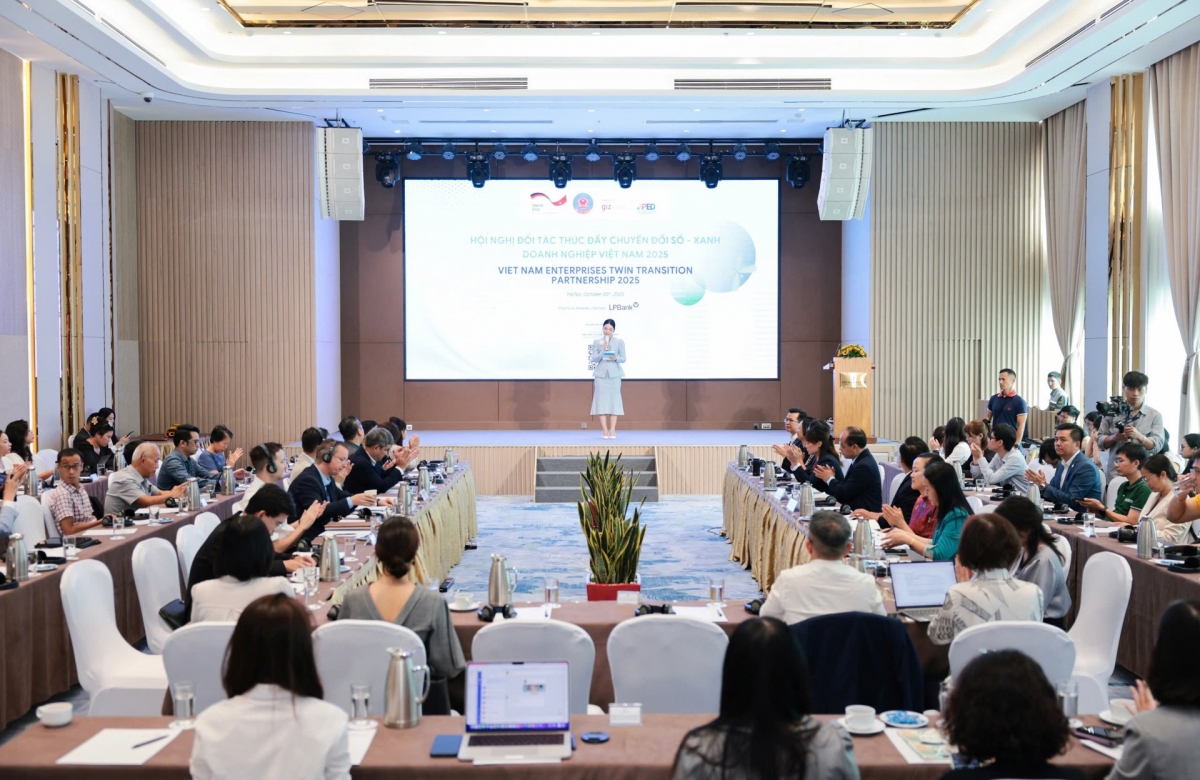Experts warn Vietnamese enterprises lag in dual transformation efforts
VOV.VN - Vietnamese enterprises, particularly small and medium-sized ones (SMEs), must quickly adapt to dual transformation, both digital and green, if they want to stay competitive amid growing global demands for sustainability, technology, and international standards.

The message was shared by experts at the Vietnam Enterprises Twins Transition Partnership 2025 (VETTP 2025) on October 20, co-hosted by the Agency for the Development of Private Enterprises and the Collective Economy (under the Ministry of Finance) and the German international cooperation agency GIZ.
Dr. Bui Thanh Minh, Deputy Director of the Office of the Research and Development Board for the Private Economic Sector (Board IV), highlighted that dual transformation is crucial not only for Vietnam’s overall economy but also for individual businesses. As the country targets double-digit growth from 2026 to 2030, Dr. Minh stressed, digital and green transformation is indispensable for boosting productivity and workforce quality.
Market forces are also driving this shift. According to Dr. Minh, policies such as the European Union’s Carbon Border Adjustment Mechanism (CBAM) and green product standards from China and Japan create significant pressure on Vietnamese enterprises to adapt. Furthermore, Vietnam’s goal of achieving net zero emissions by 2050 makes the green transformation imperative to curb greenhouse gas emissions and reduce environmental impact.
Jens Schmidt Kreye, Deputy Head of Development Cooperation at the German Embassy in Vietnam, noted that dual transformation is no longer a trend but a necessary step for Vietnamese small and medium enterprises (SMEs) as they integrate into the global economy.
Vietnam currently has more than 1 million businesses and 5.2 million household enterprises, with 98% classified as SMEs - the backbone of the national economy. However, most of these businesses are not yet prepared for the twin transition.
Dr. Minh cited studies revealing 64% of SMEs have not yet prepared for dual transformation, while 54% focus on improving customer experience locally without broader connectivity. Key barriers include limited access to capital and insufficient policy support.
To address these challenges, the Agency for Private Enterprise and Collective Economy Development has rolled out multiple initiatives supporting dual transformation. The upcoming Conference of Partners to Promote Digital and Green Transformation 2025 is part of these efforts.
The Politburo has also issued significant directives, including Resolution No. 57-NQ/TW on breakthroughs in science, technology, and national digital transformation, alongside Resolution 68-NQ focused on private sector development.
At the conference, organisers introduced the Twin Transition Hub Initiative - a public-private partnership model designed to assist SMEs through a comprehensive ecosystem connecting businesses with credit institutions and experts.




